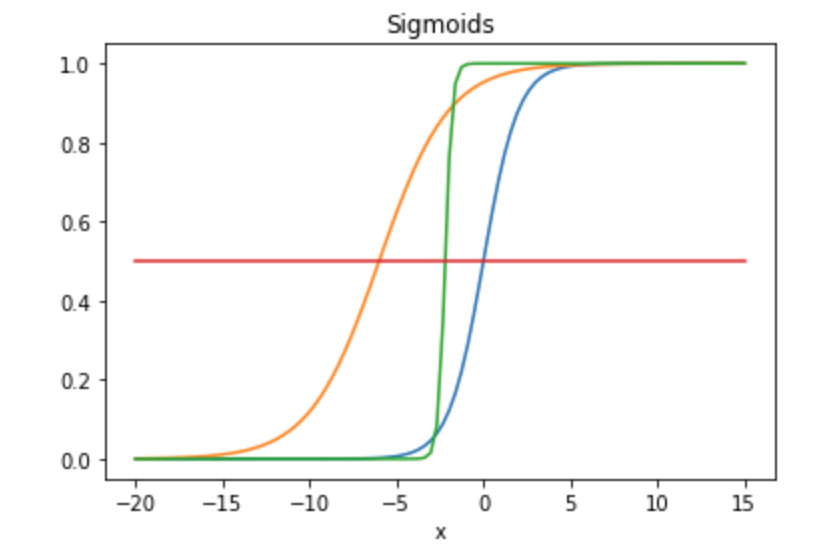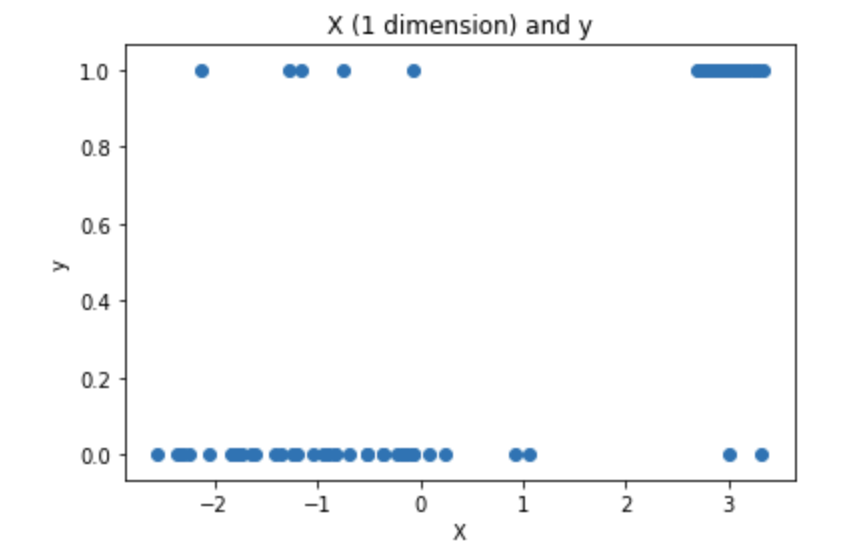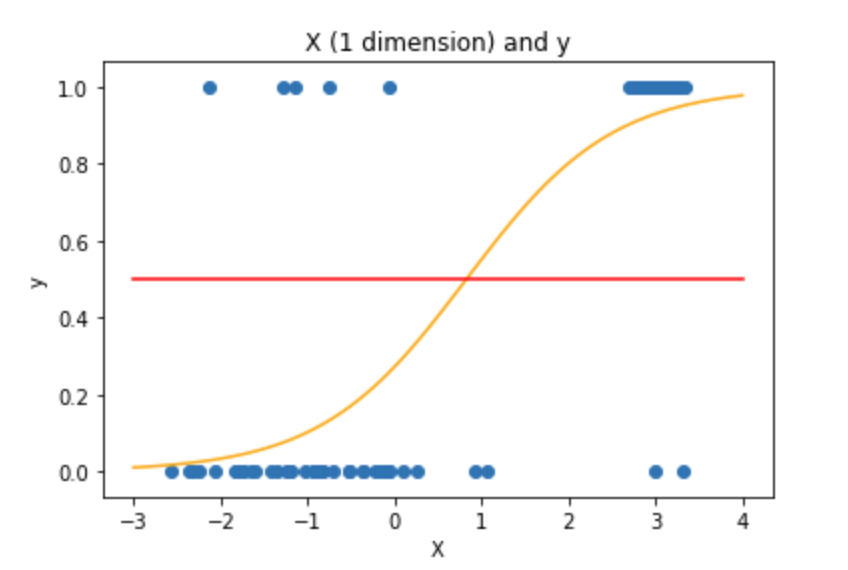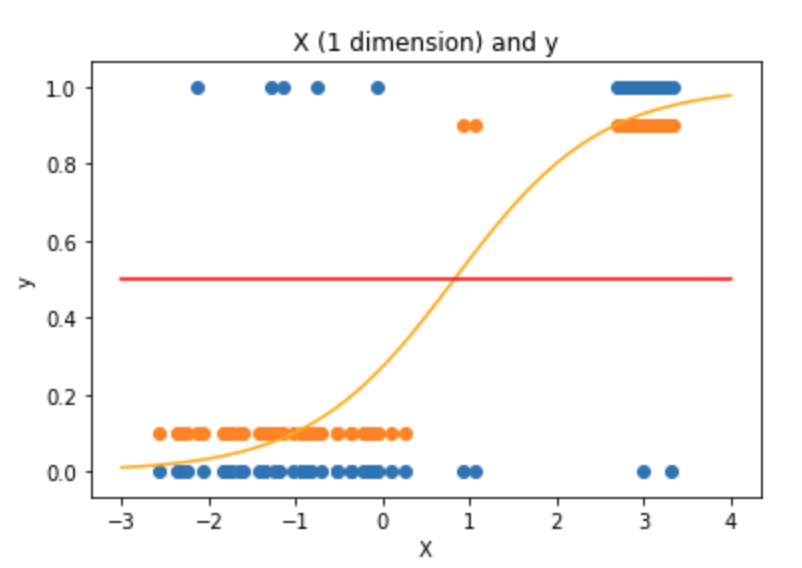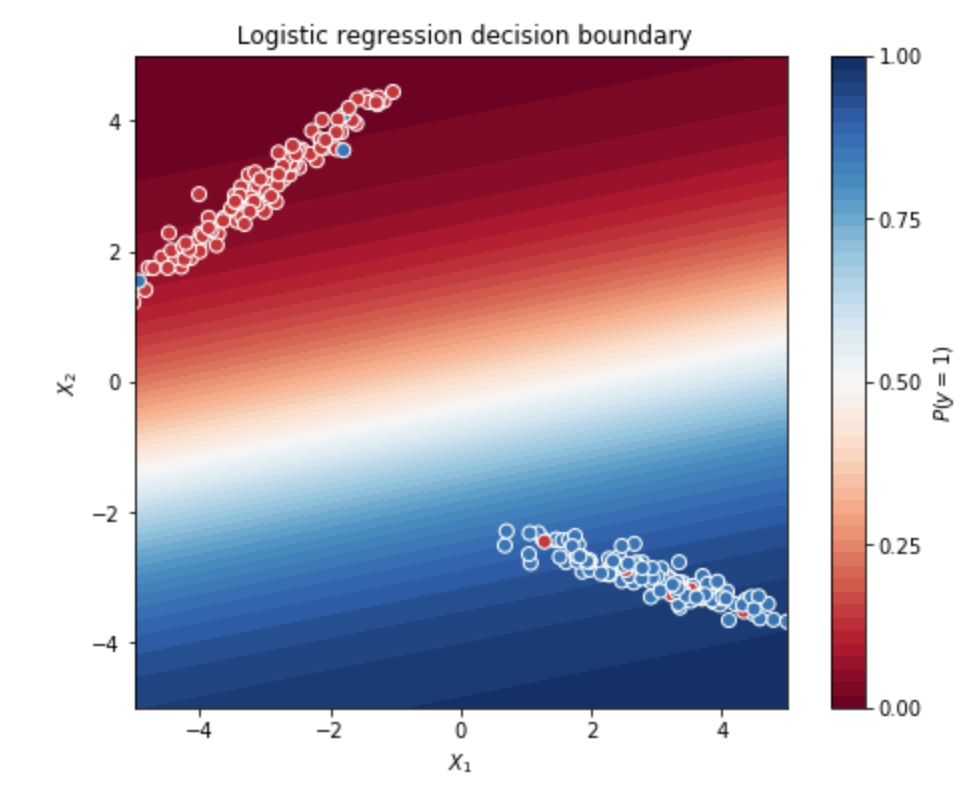5.6 KiB
Exercise 0: Environment and libraries
The exercice is validated is all questions of the exercice are validated.
Activate the virtual environment. If you used conda run conda activate your_env
Run python --version
Does it print Python 3.x? x >= 8
Does import jupyter, import numpy, import pandas, import matplotlib and import sklearn run without any error ?
Exercise 1: Logistic regression with Scikit-learn
The question 1 is validated if the predicted class is 0.
The question 2 is validated if the predicted probabilities are [0.61450526 0.38549474]
The question 3 is validated if the output is:
Coefficient:
[[0.81786797]]
Intercept:
[-0.87522391]
Score:
0.7142857142857143
Exercise 2: Sigmoid
The question 1 is validated if the plot looks like this:
Exercise 3: Decision boundary
The exercice is validated is all questions of the exercice are validated
The question 1 is validated if the outputted plot looks like this:
The question 2 is validated if the coefficient and the intercept of the Logistic Regression are:
Intercept: [-0.98385574]
Coefficient: [[1.18866075]]
The question 3 is validated if the plot looks like this:
The question 4 is validated if predict_probability outputs the same probabilities as predict_proba. Note that the values have to match one of the class probabilities, not both. To do so, compare the output with: clf.predict_proba(X)[:,1]. The shape of the arrays is not important.
The question 5 is validated if predict_class outputs the same classes as cfl.predict(X). The shape of the arrays is not important.
The question 6 is validated if the plot looks like the plot below. As mentioned, it is not required to shift the class prediction to make the plot easier to understand.
The question 7 is validated if the plot looks like this:
Exercise 4: Train test split
The exercise is validated is all questions of the exercise are validated
The question 1 is validated if X_train, y_train, X_test, y_test match the output below. The proportion of class 1 is 0.125 in the train set and 1. in the test set.
X_train:
[[ 1 2]
[ 3 4]
[ 5 6]
[ 7 8]
[ 9 10]
[11 12]
[13 14]
[15 16]]
y_train:
[0. 0. 0. 0. 0. 0. 0. 1.]
X_test:
[[17 18]
[19 20]]
y_test:
[1. 1.]
The question 2 is validated if the proportion of class 1 is 0.3 for both sets.
Exercise 5: Breast Cancer prediction
The exercice is validated is all questions of the exercice are validated
The question 1 is validated if the proportion of class Benign is 0.6552217453505007. It means that if you always predict Benign your accuracy would be 66%.
The question 2 is validated if the proportion of one of the classes is the approximately the same on the train and test set: ~0.65. In my case:
- test: 0.6571428571428571
- train: 0.6547406082289803
The question 3 is validated if the output is:
# Train
Class prediction on train set:
[4 2 4 2 2 2 2 4 2 2]
Probability prediction on train set:
[0.99600415 0.00908666 0.99992744 0.00528803 0.02097154 0.00582772
0.03565076 0.99515326 0.00788281 0.01065484]
Score on train set:
0.9695885509838998
#Test
Class prediction on test set:
[2 2 2 4 2 4 2 2 2 4]
Probability prediction on test set:
[0.01747203 0.22495309 0.00698756 0.54020801 0.0015289 0.99862249
0.33607994 0.01227679 0.00438157 0.99972344]
Score on test set:
0.9642857142857143
Only the 10 first predictions are outputted. The score is computed on all the data in the folds. For some reasons, you may have a different data splitting as mine. The requirement for this question is to have a score on the test set bigger than 92%.
If the score is 1, congratulate you peer, he's just leaked his first target. The target should be dropped from the X_train or X_test ;) !
The question 4 is validated if the confusion matrix on the train set is similar to:
array([[357, 9],
[ 8, 185]])
and if the confusion matrix on the test set is similar to:
array([[90, 2],
[ 3, 45]])
As said, for some reasons, the results may be slightly different from mine because of the data splitting. However, the values in the confusion matrix should be close to these results.
Exercise 6: Multi-class (Optional)
The exercice is validated is all questions of the exercice are validated
The question 1 is validated if each classifier has as input a binary data as below:
def train(X_train, y_train):
clf = LogisticRegression()
clf1 = LogisticRegression()
clf2 = LogisticRegression()
clf.fit(X_train, y_train == 0)
clf1.fit(X_train, y_train == 1)
clf2.fit(X_train, y_train == 2)
return clf, clf1, clf2
The question 2 is validated if the predicted classes on the test set are:
array([0, 0, 2, 1, 2, 0, 2, 1, 1, 1, 0, 1, 2, 0, 1, 1, 0, 0, 2, 2, 0, 0,
0, 2, 2, 2, 0, 1, 0, 0])
Even if I had this warning ConvergenceWarning: lbfgs failed to converge (status=1): I noticed that LogisticRegression returns the same output.
